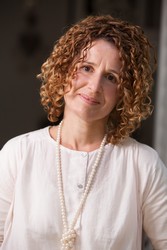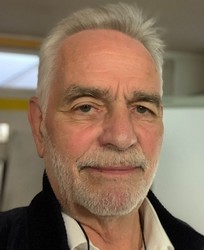Healthy Autonomy
Association for Promoting Healthy Autonomy e.V.


Maria Green *
 My Healthy Self: Intimate and Vulnerable
My Healthy Self: Intimate and Vulnerable
We are born vulnerable and seeking intimacy. However, intimacy and vulnerability has, for many clients, resulted in traumatising contact. Yet, these defenceless states of the psyche remain essential for healthy relationships throughout life. The ability to let down my guard and be truly vulnerable is what makes intimate contact possible. Until I can do this, I remain at a “safe" or Survival distance from others and from myself.
How can I as a practitioner hold a space for the fragile, furtive, fleeing child parts of the client? I must be available for safe contact with these defensive parts of their psyche. When I know my own innocence, when I have felt my own desperate vulnerability, I can. In the face of perpetrator parts, I can be a witness, alibi, champion for the wordless traumatised parts. From my healthy self - intimate and vulnerable, I endeavour to mirror and meet the attachment injuries of the client with compassion and understanding.
Workshopmaterials can be downloaded here.
Maria Green was born in Cape Town and emigrated to the UK in 1995. In 2012 she attended a Franz Ruppert lecture which led onto 5 years of IoPT Practitioner Training with Vivian Broughton and Franz Ruppert. Maria offers open Group Workshops and Individual Sessions, either online or in West Sussex, as well as an annual IoPT Introductory Course at the Centre for Healthy Autonomy, London. Maria is a second-time presenter at Franz Ruppert's International Trauma Conference, Munich. Maria lives in West Sussex with her husband and their two home-educated children. She works part-time on her teenage daughter’s Regenerative Small Farm Project, raising laying chickens and beef cattle.
Helge Max Jahns
 First intention, trauma biography and microtraumatisation
First intention, trauma biography and microtraumatisation
The effectiveness of the Intention Method and the IoPT, identity-oriented psychotrauma theory and therapy, have been confirmed hundreds of times over the past few years. And so the IoPT became most frequently used in my private psychological practice.
"What is an intention? How do I form an intention?" I often hear questions like this from people who are new to the work with the Intention Method and want to start.
In my workshop I show how I then develop a trauma biography from the perspective of the IoPT and so at the beginning of a therapy and also in the course of the therapy I come across life events that seem to have caused 'minor' trauma. And so the term microtraumatisation came into being for me. These are small traumas that have not seemed so important up to now and yet have a constant effect on the overall status of the client. My clients like to say: Now I feel this tension, it appears like a continuous current, etc. We look at something like this in the workshop.
Helge Max Jahns. I studied psychology (Marburg, Berlin, Munich) and the Munich film school. For a long time I worked as a filmmaker in the education sector of large companies and in the information sector for TV, medicine, universities, publishers and NGOs. A breakdown typical for traumatized people around the age of 40 brought me back to psychology, to my further development and to the new possibilities such as family constellations (Schneider, Hellinger, Ulsamer, Varga von Kibed and many others), hypnosystemic work (G. Schmidt), knocking (Gallo and Bohne), EMDR, Somatic Experiencing (Levine), dialogues (Moeller), genogram work etc. I have been able to accompany and learn the development of the IoPT since around 2011 at the side of Franz Ruppert. In the meantime, I've been working with it for a number of years and I'm happy to be able to convey something about it here in the workshop.
www.jahnsberatung.de
www.foerdern-nicht-fordern.de
This email address is being protected from spambots. You need JavaScript enabled to view it.
